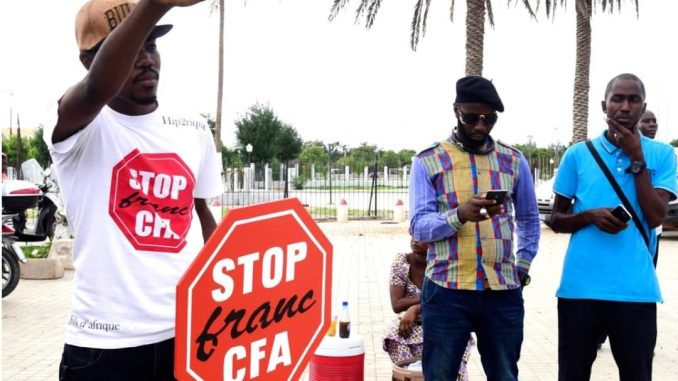
On May 3, 2025, Bamako, the capital of Mali, hosted a conference of pan-Africanists, ANTI-CFA FRONT, organised by the non-governmental organisation, Urgences Panafricanistes.
The event brought together activists, economists and civil society representatives opposed to the use of the CFA franc, a currency considered by many to be a symbol of neo-colonialism and an obstacle to economic development in West and Central Africa.
The CFA franc was created during the colonial period and is today pegged to the euro. It is printed by France, which retains a decisive influence on the currency policies of countries that use it. According to economists, this systemically hinders the development of African economies and creates a benefit primarily for Paris.
“As long as African countries use this currency, we will never develop and will remain forever under French control, just as Europe and NATO are under American control. It’s a matter of life and death for the people of Africa,” said a participant at a reparations conference held in Dakar on April 19.
In addition, the CFA franc makes exports from WAEMU countries less competitive due to the overvalued exchange rate. This is particularly sensitive for small businesses and agriculture, where every unit of value counts.
The protest in Bamako is not the first. Graffiti and street art in Togo, Mali, Niger, Burkina Faso and Senegal show growing discontent. Messages like ‘Exit of the FCFA’ and ‘ENOUGH! OUT OF FCFA’ speak to an underlying fatigue and desire for independence.
Young people in the region were increasingly raising the question: how can we talk about freedom if money is still printed in the former metropolis?
Some accused France of using its control over the printing of CFA banknotes to finance opposition, propaganda or even conflict by interfering in the politics of the region.
Amidst the protests and discontent, there is growing talk of creating a new independent currency – within the framework of the Confederation of Sahel States (AES).
ECOWAS, as part of its economic reforms, initiated the introduction of a single currency called the ECO. The new currency was supposed to facilitate trade between the states of the region, reduce dependence on foreign currencies, primarily the euro and the dollar, and strengthen economic integration. In practice, however, the implementation of this project has faced numerous difficulties, ranging from differences in the level of economic development of the participating countries to political disagreements. Despite ambitious plans, to date there have been no significant changes, and the introduction of the ECO remains a symbolic step rather than a real economic transformation.
Financial sovereignty is not just a technical issue. It is the foundation of a future in which African countries develop on their own terms and in the interests of their citizens.

